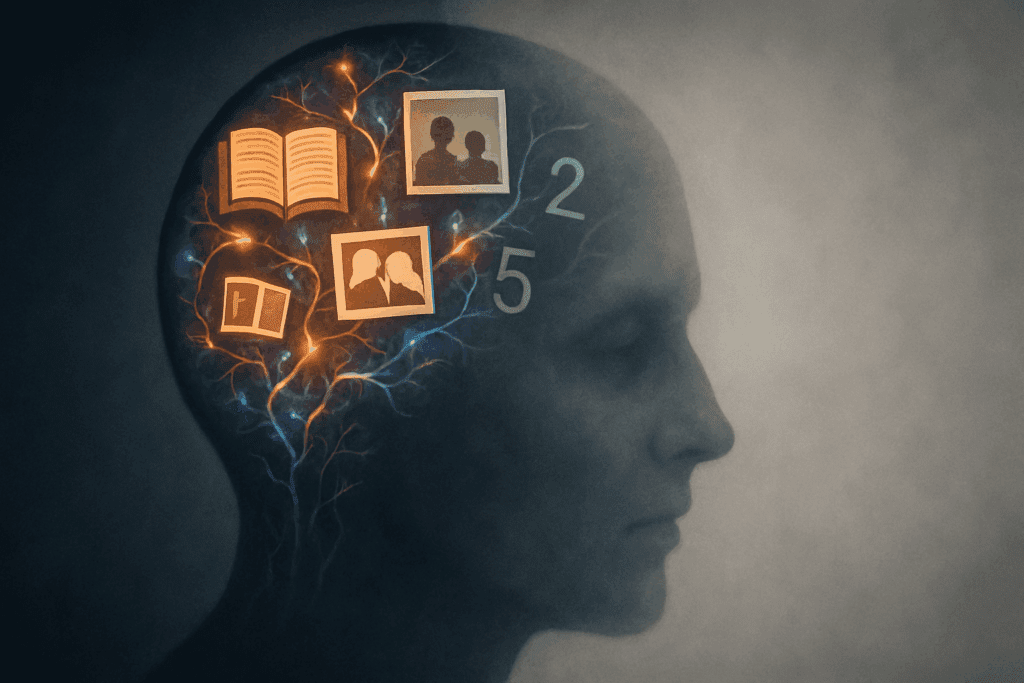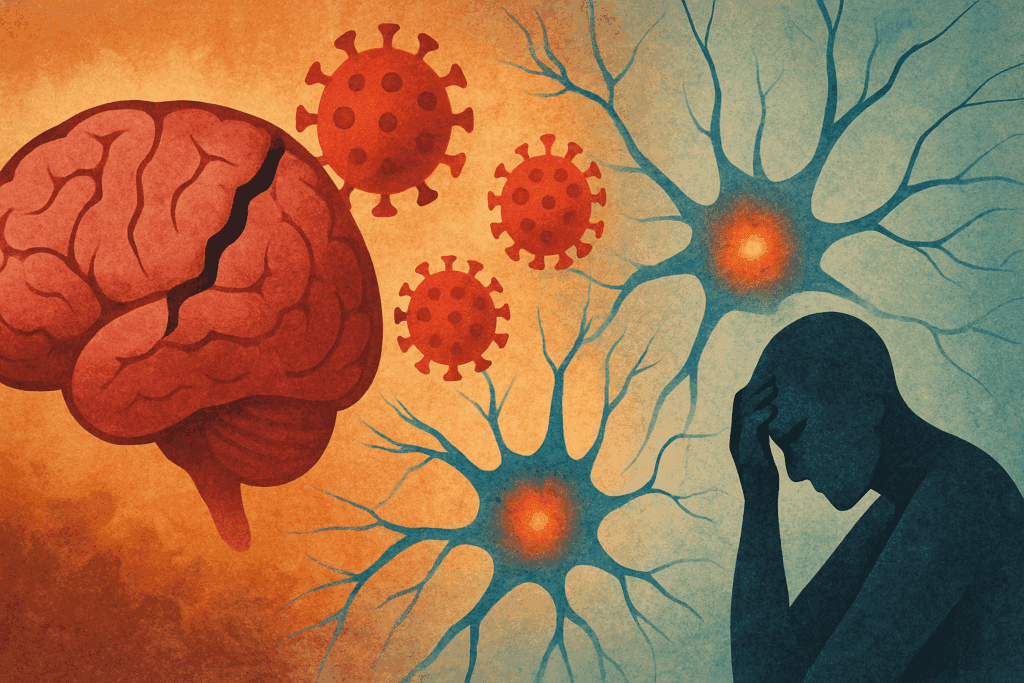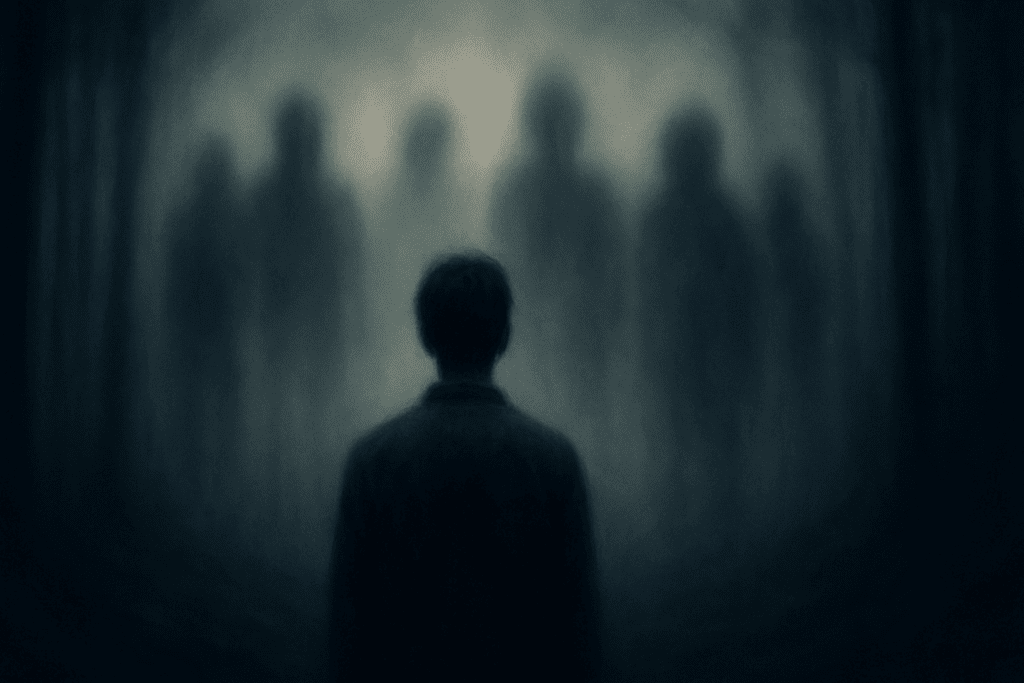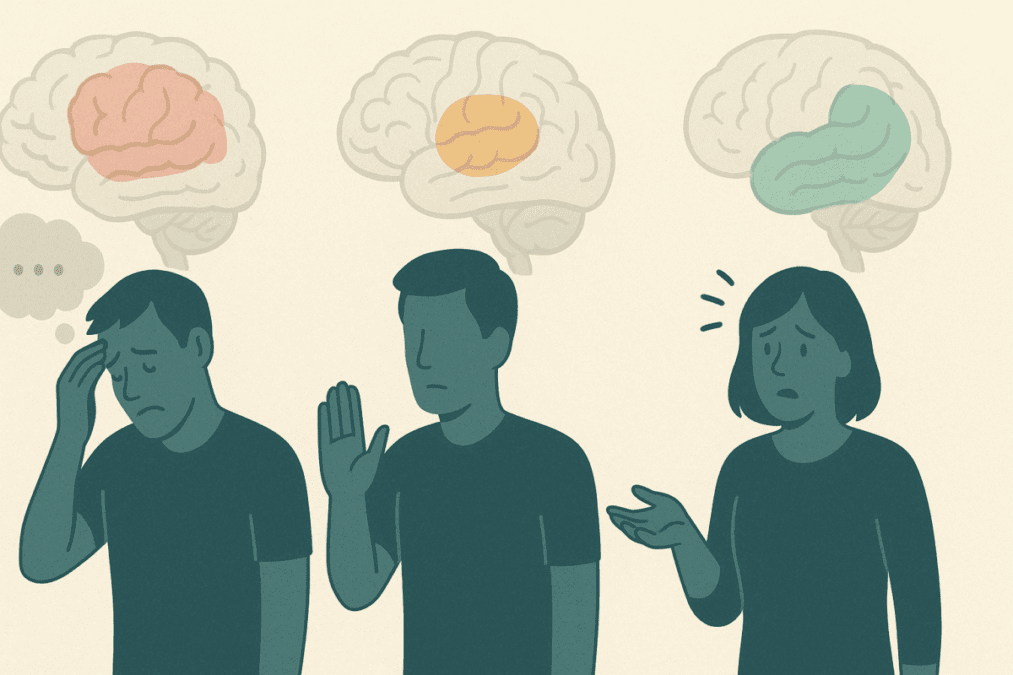Amnesia, often misunderstood and misrepresented in popular culture, is a serious neurological condition that disrupts the continuity of memory. Whether triggered by physical trauma, emotional shock, or underlying illness, amnesia represents a profound alteration in the way we record, retrieve, and interpret experiences. For readers seeking to understand what causes amnesia, this comprehensive guide offers an in-depth look at the symptoms, types, and potential dietary and botanical supports for brain health and memory preservation.
You may also like: Best Herb for ADHD Support: How Natural Remedies and Herbs for ADHD Women May Help Boost Focus and Calm
Amnesia Defined: More Than Just Memory Loss
When we ask, “what is amnesia,” we are not merely referencing forgetfulness. Amnesia is a medical condition characterized by the partial or total inability to recall past experiences or to form new memories. This impairment can affect both short-term and long-term memory and is usually a symptom of underlying neurological disruption. Commonly, people use the term “amnesia” interchangeably with “memory loss,” but clinically, it represents a specific set of disruptions with well-defined diagnostic criteria.
There are different types of amnesia, with each affecting memory in distinct ways. For instance, retrograde amnesia involves the loss of pre-existing memories, while anterograde amnesia prevents the formation of new memories after the event that caused the condition. Understanding how does amnesia occur requires exploring the neurological, psychological, and biochemical mechanisms that govern memory formation and retrieval.

Unpacking the Symptoms of Amnesia
The symptoms of amnesia vary depending on the cause and type of the condition. In general, amnesia disease symptoms include confusion, disorientation, difficulty forming new memories, and the inability to recall past information. Acute memory loss and confusion may arise suddenly after a traumatic event, whereas chronic cases might develop gradually due to neurodegenerative diseases.
One of the most telling signs and symptoms of amnesia is the inability to retain new information despite having otherwise normal cognitive abilities. Patients may repeat questions multiple times, appear lost in familiar environments, or struggle with routine tasks. These amnesia disease symptoms are not only disorienting for the individual but deeply distressing for loved ones, who witness the gradual erosion of shared history and identity.
What Can Cause Amnesia? Medical and Environmental Factors
The question of what causes amnesia is complex, as this condition can stem from multiple sources. Traumatic brain injury remains one of the most prominent causes. A blow to the head from a fall, accident, or assault can damage regions of the brain responsible for memory consolidation, particularly the hippocampus and temporal lobes. Similarly, strokes, which disrupt blood flow to critical brain regions, are among the diseases that cause amnesia by impairing neuronal communication.
Beyond physical trauma, amnesia can also result from infections like encephalitis, degenerative diseases such as Alzheimer’s, or exposure to toxic substances. Even severe emotional distress or psychological trauma can produce dissociative amnesia, where the mind blocks out specific events as a coping mechanism. Understanding what is the main cause of amnesia often involves a thorough neurological and psychological evaluation, as many overlapping conditions contribute to its onset.

Differentiating Amnesia from Other Memory Disorders
One of the key challenges in diagnosis is establishing a differential diagnosis for memory loss. Conditions like Alzheimer’s disease, dementia, and cognitive impairment due to substance abuse or medication can mimic the symptoms of amnesia. This makes understanding the word for memory loss, or rather the underlying cause of that memory disruption, critical for effective treatment.
Clinicians must distinguish between amnesia vs memory loss as general forgetfulness could stem from age-related cognitive decline, vitamin deficiencies, or mood disorders. A careful assessment including brain imaging, psychological testing, and lab work helps isolate amnesia from other neurocognitive disorders. The process not only identifies different kinds of amnesia but also informs personalized treatment strategies.
Mental Illness, Emotional Trauma, and Their Role in Memory Loss
The interplay between mental illness and memory is profound. Cases of mental illness memory loss are often seen in conditions like schizophrenia, severe depression, or post-traumatic stress disorder (PTSD). These psychiatric disorders can interfere with memory processing, often manifesting in ways similar to neurological amnesia. Dissociative amnesia, in particular, emerges when the brain suppresses traumatic events to protect the psyche.
Understanding how do you get amnesia in the context of mental health involves exploring how stress hormones, neurotransmitter imbalances, and emotional trauma disrupt the brain’s memory networks. While the memory disruption in such cases may be temporary, it can have lasting impacts on an individual’s sense of continuity, identity, and mental function.

Temporary Loss of Memory and Short-Term Disruptions
Not all memory lapses indicate clinical amnesia. Temporary loss of memory can occur from factors such as sleep deprivation, medication side effects, or acute stress. These episodes, while alarming, are often reversible and do not indicate permanent brain damage. However, frequent occurrences warrant medical attention to rule out underlying issues.
In examining what can cause amnesia on a short-term basis, it is important to consider lifestyle factors. Alcohol and drug use, chronic fatigue, and poor nutrition can all contribute to memory lapses. Understanding the difference between temporary cognitive fog and lasting amnesia helps individuals and clinicians alike respond with appropriate urgency and care.
A Look at Different Types of Amnesia
There are several clinically recognized types of amnesia, each with distinct features. Beyond the common classification into retrograde and anterograde types, conditions such as transient global amnesia, infantile amnesia, and dissociative amnesia reflect a range of etiologies. Transient global amnesia, for example, involves sudden but temporary memory loss, often triggered by stress or physical exertion.
Understanding the different types of amnesia is key to tailoring treatment approaches. For example, dissociative amnesia might benefit more from psychotherapy, while anterograde amnesia may require occupational therapy and memory aids. Each subtype reflects the diverse ways in which the human brain can be affected by injury, disease, or psychological stress.
How to Have Amnesia? The Ethics and Fiction
While it may sound strange, some individuals inquire about how to have amnesia, usually in the context of escaping trauma or due to misconceptions from movies. In reality, inducing amnesia intentionally is neither ethical nor advisable. The desire to forget painful memories is human, but deliberately disrupting memory pathways poses significant psychological and neurological risks.
Moreover, the concept of “how to have amnesia” raises critical ethical questions, particularly in contexts like experimental therapy, interrogation, or entertainment media. It’s essential to distinguish between the fictional portrayal of memory loss and the lived reality of those who experience its disorienting effects firsthand.

Natural Ingredients That May Support Memory Health
While modern medicine offers several pharmacological treatments for memory loss, many individuals seek natural ways to support brain health and mitigate the symptoms of amnesia. Botanical ingredients such as Ginkgo biloba, Bacopa monnieri, and lion’s mane mushroom have been studied for their potential to enhance memory, support neuronal growth, and improve cognitive clarity.
Ginkgo biloba is one of the most extensively researched herbs for memory support. It is believed to enhance cerebral blood flow and reduce oxidative stress, which may indirectly support those experiencing mild memory loss. Similarly, Bacopa monnieri has shown promise in clinical trials for improving recall and attention, particularly in older adults. These herbs may not reverse amnesia disease symptoms but can offer adjunctive support for overall cognitive resilience.
The Role of Diet in Brain Function and Memory Preservation
Nutrition plays a pivotal role in brain health. Diets rich in omega-3 fatty acids, antioxidants, and B-complex vitamins can fortify the brain against age-related decline and environmental stressors. Fatty fish, walnuts, leafy greens, and berries are often highlighted for their neuroprotective properties.
Understanding what you read for exams or how to remember things while studying can be supported by proper nutrition. For instance, choline-rich foods like eggs are essential for acetylcholine production, a neurotransmitter associated with memory and learning. Integrating such foods into the daily diet can create a biochemical environment conducive to long-term memory preservation and sharper cognitive function.
How to Memorize Something for a Test: Practical Strategies
Whether you’re a student preparing for finals or a professional engaging in lifelong learning, memory techniques are essential. Spaced repetition, active recall, and visualization are evidence-based strategies that align with the brain’s natural information retention processes. These techniques help consolidate information more effectively, reducing the risk of short-term forgetting.
Incorporating these techniques alongside memory-supportive herbs and brain-friendly foods creates a holistic approach to learning. For instance, pairing study sessions with brief periods of aerobic activity can enhance memory consolidation. Likewise, maintaining adequate hydration and sleep hygiene further supports cognitive performance and helps individuals better remember what they read for exams.
Medical and Alternative Approaches to Amnesia Treatment
Amnesia disease treatment varies depending on the cause. In cases of brain injury or stroke, rehabilitation efforts may include physical therapy, cognitive retraining, and speech therapy. For those with psychological amnesia, such as dissociative disorders, psychotherapy and counseling are often the first line of intervention.
Alternative approaches include the use of nootropic supplements and mindfulness-based stress reduction to promote overall cognitive well-being. However, these should be approached with caution and guided by medical advice. While there is no single herb or supplement that can cure amnesia, some evidence supports the use of certain compounds to maintain cognitive function and reduce symptoms.
Navigating Amnesia vs Memory Loss in Everyday Contexts
Distinguishing between amnesia vs memory loss is essential in clinical and everyday settings. Amnesia often implies a pathological condition, while memory loss can result from more benign factors like distraction or lack of sleep. Recognizing this distinction helps demystify the condition and encourages appropriate medical evaluation when memory disruptions interfere with daily life.
The phrase word for losing memory is often used loosely, but its implications are significant. Whether the concern stems from aging, stress, or a suspected neurological disorder, timely consultation with a healthcare provider can clarify whether the memory loss is part of normal aging or indicative of diseases that cause amnesia. Early intervention is critical, as many forms of cognitive decline are more manageable when addressed promptly.

Frequently Asked Questions About Amnesia: Clarifying Complexities and Exploring Cognitive Care
What are some lesser-known diseases that cause amnesia beyond stroke or head trauma?
While stroke and traumatic brain injuries are commonly associated with memory loss, several lesser-known diseases that cause amnesia include autoimmune encephalitis, brain infections like herpes simplex encephalitis, and conditions such as Wernicke-Korsakoff syndrome—a neurological disorder caused by thiamine deficiency often related to chronic alcoholism. These diseases affect critical memory-processing areas of the brain, leading to acute or chronic disruption. Amnesia disease symptoms in these cases may also include personality changes, hallucinations, or coordination issues. Increasing awareness of these diseases enhances diagnostic precision, particularly in patients who do not present with typical causes like trauma.
How do emotional and social environments influence how amnesia occurs in individuals with psychological conditions?
In cases of dissociative amnesia, the emotional and social context plays a critical role in how amnesia occurs. Prolonged emotional abuse, wartime trauma, or childhood neglect can create protective memory barriers where the brain actively suppresses overwhelming experiences. This form of memory loss is closely linked to identity confusion and dissociation. Unlike neurological damage, the symptoms of amnesia in these cases may fluctuate based on emotional triggers and social context. Treatment often involves psychotherapy aimed at reintegrating lost memories in a safe, controlled setting.
What makes the differential diagnosis of memory loss so complex in modern clinical practice?
The differential diagnosis of memory loss requires disentangling many overlapping conditions, including dementia, depression, medication side effects, and amnesia. What complicates the process is that symptoms of amnesia often mimic age-related forgetfulness or cognitive fatigue, making early-stage diagnosis particularly challenging. Neurologists must distinguish between normal aging and diseases that cause amnesia through comprehensive neuropsychological tests, imaging studies, and lab screenings. They also evaluate emotional states, as mental illness memory loss can present similarly but stem from entirely different mechanisms. This diagnostic complexity necessitates a multidisciplinary approach that includes mental health specialists.
Is there a difference between the word for losing memory and clinical amnesia?
The word for losing memory is often used casually to describe forgetfulness, but clinical amnesia is a formal diagnosis with specific parameters. What is amnesia in clinical terms involves identifiable disruptions in memory formation or retrieval, often with a known cause. Using another name for memory loss without context can blur important distinctions between mild cognitive impairment, dementia, and true amnesic syndromes. Understanding these nuances helps both patients and caregivers seek appropriate evaluation. It also supports public education in recognizing early signs and symptoms of amnesia requiring intervention.
Can temporary loss of memory ever be a sign of something more serious?
Yes, while a temporary loss of memory can be benign, such as from sleep deprivation or stress, it may also signal underlying neurological issues if it recurs frequently. Events like transient global amnesia can appear harmless but may be early indicators of vascular or metabolic disorders. Repeated episodes warrant investigation into what can cause amnesia beyond environmental factors. In some cases, recurring memory lapses precede degenerative diseases that cause amnesia. Monitoring symptoms over time helps establish whether they are isolated events or part of a broader cognitive decline.
How do different kinds of amnesia affect rehabilitation strategies?
Rehabilitation depends heavily on the type of amnesia diagnosed. Different kinds of amnesia, such as anterograde or dissociative types, require tailored interventions. Anterograde amnesia may involve memory aids, structured routines, and caregiver support, whereas dissociative amnesia benefits from trauma-informed psychotherapy. Each type reflects unique disruptions in brain systems, so strategies must align with how the memory disruption occurred. Understanding the specific kind also affects long-term prognosis and potential for recovery, making early differentiation vital.
What role do micronutrient deficiencies play in what causes amnesia?
Micronutrient deficiencies are an underestimated contributor to what causes amnesia, especially in populations with limited access to nutritious foods. Thiamine (vitamin B1), B12, and omega-3 fatty acids are crucial for neuronal function and memory consolidation. Deficiencies in these nutrients can lead to reversible amnesia disease symptoms if caught early. Wernicke-Korsakoff syndrome is a prime example where dietary deficiency results in acute memory loss and confusion. Addressing nutritional gaps is a practical, evidence-backed component of amnesia disease treatment.
Why do some people ask how to have amnesia, and what does that say about our cultural understanding of memory?
Questions about how to have amnesia often stem from a desire to escape trauma or painful memories, reflecting how memory is intertwined with identity and emotional well-being. In literature and film, amnesia is sometimes romanticized as a reset button, further distorting public perception. However, real amnesia is debilitating and disorienting, not a therapeutic tool. Such questions underscore the need for mental health resources that help individuals process distress without seeking cognitive erasure. Culturally, this curiosity reveals how little is understood about the consequences of disrupting memory integrity.
How does acute memory loss and confusion present differently in younger versus older adults?
Acute memory loss and confusion in younger adults often result from head injuries, substance use, or psychological stress, whereas in older adults, these symptoms are more likely tied to neurodegenerative diseases that cause amnesia. The context and underlying health status significantly influence how these symptoms are interpreted. In younger individuals, clinicians may explore psychiatric causes or toxin exposure more aggressively, while in older adults, they may prioritize dementia screening. Recognizing age-related patterns ensures appropriate testing and treatment pathways. It also illustrates how symptoms of amnesia are interpreted through a generational lens.
What innovations are emerging in the field of amnesia disease treatment?
Recent advancements in neuroplasticity research and brain-computer interface technology offer promising new avenues for amnesia disease treatment. Techniques like transcranial magnetic stimulation (TMS) and neurofeedback training aim to reactivate dormant neural circuits. AI-assisted diagnostic tools also help in differentiating between amnesia vs memory loss by analyzing behavioral patterns over time. Additionally, research into synaptic repair and neurogenesis using natural compounds is gaining traction. These innovations reflect a shift toward holistic, personalized medicine that integrates both high-tech solutions and lifestyle-based interventions.

Conclusion: Supporting Brain Health and Understanding Amnesia’s Complexity
Understanding what causes amnesia requires a multidimensional approach that considers neurological damage, psychological trauma, and lifestyle influences. The signs and symptoms of amnesia may mirror other memory disorders, but the underlying causes and treatments differ widely. Accurate diagnosis is essential for guiding effective treatment, whether through medication, cognitive therapy, or supportive nutrition.
Natural ingredients and brain-healthy foods may not serve as cures, but they can bolster resilience and provide complementary support. For those wondering how to remember things while studying or seeking ways to protect their cognitive faculties, a combination of herbal support, mental training techniques, and nutritional strategies may offer sustainable benefits. By focusing on both clinical understanding and everyday applications, we empower individuals to navigate memory challenges with clarity, compassion, and scientifically grounded strategies.


